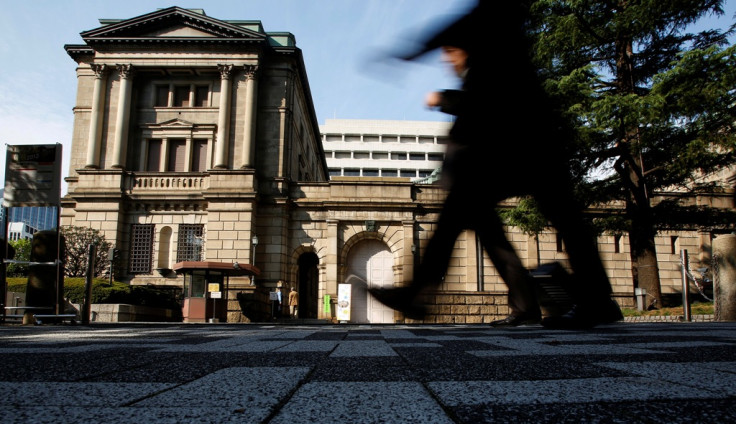BOJ Policymakers Expect Japan's Economic Recovery to Continue in 2014

Bank of Japan policymakers are largely agreed that a recovery in the world's third-largest economy would sustain into 2014, supported by an improving job market that is expected to spur consumer spending.
However, some officials expressed concern about the pace of growth, the minutes of the central bank's November meeting showed.
According to the minutes, two policy board members voiced their fears about a large contribution from inventories and a fall in wages, highlighted in Japan's third-quarter gross domestic product data.
Many economists have said Japan's GDP growth has picked up following rising exports.
However, the planned increase in the national sales tax to 8% in April, from 5% at present, is expected to result in a temporary economic contraction.
That situation could compel the central bank to further loosen its policy.
Several board members also said consumer spending and domestic demand were contributing to broad gains in consumer prices, the minutes revealed.
However, one member expressed doubt that the BOJ could meet its inflation target, given that long-term inflation expectations were controlled by economic fundamentals, the minutes showed.
BOJ Governor Haruhiko Kuroda said consumer inflation would surpass 1% in the first six months of 2014.
At the November 20-21 policy meeting, BOJ board members voted to keep the central bank's promise of increasing its cash and deposits at an annual pace of 60tr yen to 70tr yen ($600bn to $700bn).
The BOJ first made that pledge in April to meet its 2% inflation goal in two years.
Sustainable Recovery
Japanese consumer inflation rose to a five-year high and factory output increased for a second consecutive month in October, suggesting that government and central bank efforts to revive the economy were bearing fruit.
The October consumer price inflation numbers logged their highest reading since the country slipped into deflation 15 years ago.
Meanwhile, the availability of jobs moved up to its highest level in nearly six years, another sign that Japan's economic recovery would sustain into 2014.
In the July-September third-quarter, Japan's economy expanded by 0.3%, slower than the preceding quarter's 0.9% rate of expansion, owing to lower consumer spending and exports.
© Copyright IBTimes 2024. All rights reserved.







